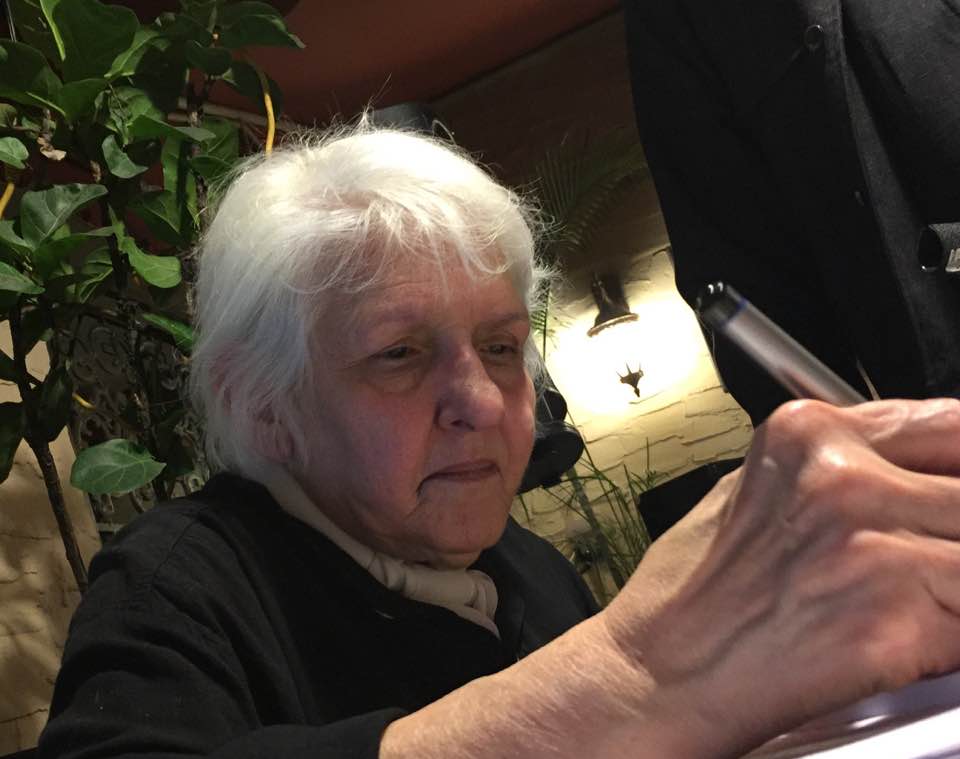
Luis Felipe Rojas, 14 March 2017 — A poet writes to unpick puzzles, to sell and buy other questions. The Cuban poet Magali Alabau came to Miami this Friday 10th March to give a reading from her book “Fatal Attraction” (Betania, 2016). She did it in La Esquina de las Palabras Lounge, which was founded and run by the poet Joaquín Gálvez in Café Demetrio in Coral Gables.
Alabau, a stage actress, who didn’t decide to write until she hit 40, has a voice which slides words around to tell a story which is forgotten here in the north, which all of us in exile are seeking – everyone in exile is seeking. Her sense of direction as she weighs every step becomes a necessity. “Poetry is the foundation through the word, and in the word”, states Heidegger when he embraces the poetry of Hölderlin, and it is precisely in that tone of voice that Magali Alabau has proposed to construct and name her domain, nomatter how small … or resonant … or large it seems to us. There is no other foundation which is not a word.
“This foreign body / which is, during the day, / only involuntary movements, prayer which starts / and doesn’t finish.”
What is praiseworthy in a poet who lowers her head to give herself to others, to not look back, and to follow those voices which will call to her all her life? Nothing, we can reply, if we understand the ancient profession rebuilt time and time again on the graves of other voices, of other authors.
The mistakes of friendship, the errors of custom, pseudo love, and violence, flow through this book like a flood. In Magali’s voice we encounter accidents and not human characteristics. It is a text without makeup, for which we should be thankful. “I can hear you behind me / harping on about supposed predictions. / I laugh at you, yes, I laugh”, she says to death.
Alabau lives in New York and is the author of a dozen books of poems, with a special mention for “Hermanas”, which won the Poesía Latina Prize in 1992; “Electra, Clitemnestra” (Ed. El Maitén, Chile, 1986) and “Hemos llegado a Ilión” (Betania,, 19922), among others.
Translated by GH
